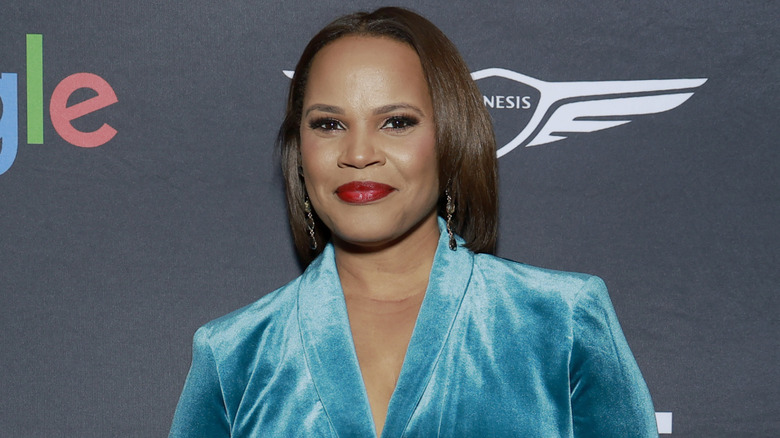I Was Scared: Laura Coates Reveals She Almost Died During Childbirth

Laura Coates, a respected anchor at CNN, has candidly opened up about her terrifying experience during childbirth, revealing that she nearly lost her life. In a heartfelt conversation with Dr. Kameelah Phillips, she aimed to highlight the critical issues surrounding maternal health, especially for Black women facing alarming disparities in the U.S. healthcare system. Coates’ story is not just a personal narrative; it reflects a broader epidemic of maternal mortality that disproportionately affects women of color.
The Shocking Reality of Maternal Mortality Rates

The United States has one of the highest maternal mortality rates among developed nations, with a particularly concerning impact on Black women. According to research, Black women are three to four times more likely to die from pregnancy-related complications compared to white women. This staggering statistic reveals deep-seated inequities within the healthcare system, which can manifest in various forms, including lack of access to proper medical care, inadequate prenatal education, and racial bias among healthcare providers.
During her discussion, Coates expressed her fear and disbelief when she faced a life-threatening situation during her labor. This encounter not only shook her but also served as a wake-up call about the critical condition of maternal health for Black women in America. By sharing her own frightening experience, Coates encourages other women to voice their concerns, advocate for themselves, and seek the care they deserve during such a vulnerable time.
Insights from Dr. Kameelah Phillips on Improving Maternal Health

Dr. Kameelah Phillips, a practicing OB-GYN and maternal health advocate, provided valuable expertise during the conversation. She outlined several factors contributing to these disheartening maternal mortality rates and shared actionable advice for pregnant women, especially those in marginalized communities. One of the significant points Dr. Phillips raised was the importance of building a trusting relationship with healthcare providers. Women should feel comfortable discussing their fears and medical history openly to ensure they receive personalized care during pregnancy and childbirth.
- Seek Out Comprehensive Prenatal Care: Regular check-ups are crucial. Women should ensure they are monitored throughout their pregnancy to catch any potential issues early.
- Know Your Body: Each woman’s body responds differently to pregnancy. Women should trust their instincts and advocate for further examinations if they feel something isn’t right.
- Education is Key: Engaging in prenatal classes and learning about childbirth can empower women and provide them with the knowledge they need to make informed decisions.
- Build a Support Network: Connecting with other mothers or advocacy groups can provide emotional support and valuable guidance through the pregnancy journey.
The Call to Action: Addressing Systemic Disparities in Maternal Care

Coates’ experiences and Dr. Phillips’ insights serve as a rallying cry for action within the community and healthcare system. Increasing awareness around systemic disparities is crucial to improving maternal health outcomes. This dialogue emphasizes the importance of education, advocacy, and informed care practices to address the alarming rates of maternal mortality, particularly among Black women.
Moreover, it calls for health professionals and policymakers to implement effective strategies aimed at reducing these disparities. Enhancing training for medical professionals on implicit bias, improving access to quality prenatal care, and advocating for policy reforms can significantly mitigate the risks faced by pregnant women in underserved communities.
Laura Coates’ candid disclosure resonates with many women who have faced similar fears. Her story is a powerful reminder of the need for change and the importance of addressing the challenges that women, particularly Black mothers, encounter during childbirth. As her narrative continues to inspire dialogue, it’s essential for everyone, especially women of color, to take charge of their health and advocate for themselves in the healthcare system.
In conclusion, sharing experiences like Coates’ not only fosters awareness but also encourages action towards significant improvements in maternal health care. If you or someone you know faces this journey, prioritize your well-being. Reach out for support, educate yourself, and ensure your voice is heard. Together, we can advocate for a healthier future for all mothers.

